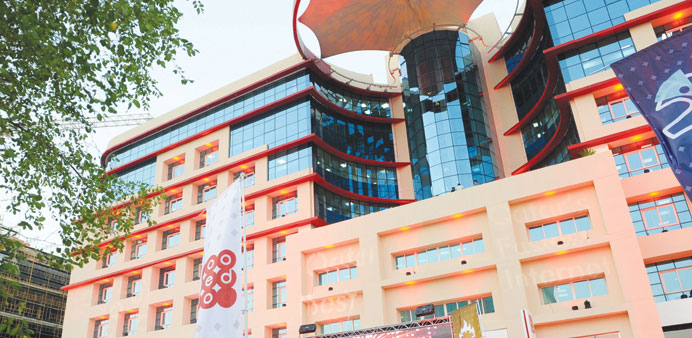Reuters
Dubai
Ooredoo is in talks with Norway’s Telenor to share transmitter towers in Myanmar, seeking cost savings as they build networks in one of the world’s least developed telecom markets, a top executive at the Qatari firm said.
Myanmar awarded the country’s first foreign-held mobile licences to the two companies in June after receiving interest from more than 90 companies and consortiums. At the time, Ooredoo said it planned to spend $15bn over the 15-year licence period.
“It’s a green-field launch and we’re going to build the network in partnership with Telenor,” Jeremy Sell, Ooredoo’s chief strategy officer, told a conference in Dubai yesterday.
“This has never been done before - we’re rolling out two green-field networks and anything made of steel or concrete we want to share. There are no towers that are so strategic you can’t share them.”
Sell said this would enable Ooredoo, to make “considerable” savings.
A spokesman for Telenor did not return calls or email seeking comment.
Two state-backed firms - Yatanarpon Teleport (YTP) and Myanmar Post and Telecommunications (MPT) - already hold mobile licences. YTP functions primarily as an Internet service provider, while MPT - a department of the Communications Ministry - acts as both a regulator and operator.
But these have made little headway in developing the communications sector. Mobile penetration was just 11% in 2012 - only Eritrea, Somalia and North Korea had fewer subscriptions per capita - while 1% of the country’s estimated 60mn people use the Internet, according to the International Telecommunication Union.
Sell said discussions with Telenor were continuing, adding Ooredoo would likely also work with the two local operators.
“We might even outsource the entire build,” he said.
Splitting capital costs would make reaching rural areas more economically viable, with Myanmar posing big challenges.
“No one speaks English, we can’t get galvanized steel,” said Sell. “There aren’t enough cranes. The country is covered in jungle. The roads flood. There’s no power. It’s a bit like Thailand was 30 years ago - it’s a pristine and beautiful but undeveloped country.”
Edwin Vanderbruggen of law firm VDB Loi, which has offices in Myanmar and neighbouring countries, said foreign operators faced a legal maze in securing land for tower sites.
“Imagine having to sign up an average of 60 leases in a week, often in areas without land-title paperwork, and getting approvals for each one of them from different ministries,” said Vanderbruggen. “It’s the regulatory equivalent of rolling out a network on Mount Everest.”
A quasi-civilian government came to power in Myanmar in 2011 after 49 years of military rule, ushering in economic reforms and ending the country’s international isolation.
“We’re launching with a 3G network - for 60mn that will be their first chance to ever go on the Internet,” said Sell. “So far, they’re letting us do it - (to) open access to the entire world for a whole population that has never really seen anything except state media.”
The government approved more foreign direct investment in the five months to September 20 than for all of 2012.
“Us and Telenor and other investors in the country, we don’t want to put a huge amount of money in straight away,” said Sell. “We’ve still got to be a bit cautious and see how it goes.”

